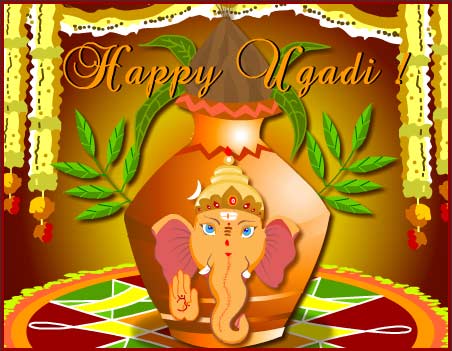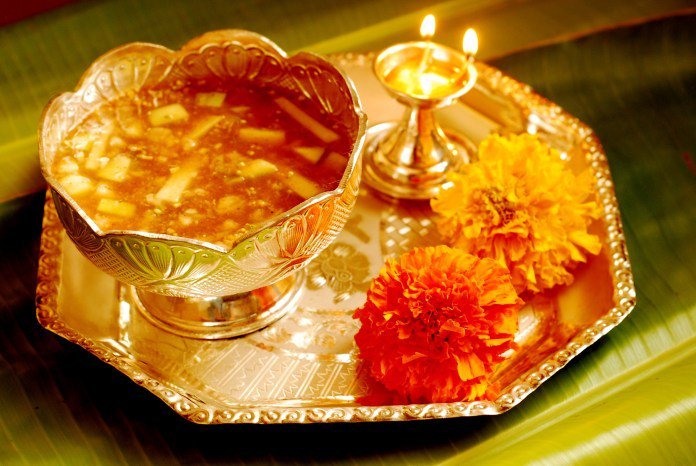
Ugadi day is seen by decorating doors with mango leafs called ‘toranalu’ in Telugu, giving endowments, offering philanthropy to poor people, and sharing an extraordinary sustenance called ‘Ugadi pachadi’, and going to temples.
Ugadi is the New Year’s Day for the Hindus of Andhra Pradesh, Telangana and Karnataka state in India.
It is festivity seen in these locales on the very first day of the Hindu lunisolar schedule month of Chaitra.
This normally falls in March or April of the Gregorian calendar.
The day is seen by decorating doors with mango leafs called ‘toranalu’ in Telugu, giving endowments, offering philanthropy to poor people, and sharing an extraordinary sustenance called ‘Ugadi pachadi’, and going to temples.
Devotees perform pujas and seek blessings from God for prosperity, wealth, wellbeing, and success in their respective professions.
Significance of ‘Ugadi Pachadi’
As part of the process of making ‘Ugadi Pachadi’, there is a mix of six items and each of them has its own significance that symbolizes emotions of life.

Ugadi festivity likewise incorporates a chronicle perusing out of ‘panchangam’ by the eldest individual from the family or an educated priest, who commonly makes predictions for the forthcoming year.
Jaggery which represents happiness
Green chilli which represents anger
Salt which represents fear
Neem Buds which represents sadness
Tamarind juice which represents disgust
Neem blossoms and tender of mango seed which represents surprise.
Devotees perform pujas and seek blessings from God for prosperity, wealth, wellbeing, and success in their respective professions.
Ugadi has always been imperative and memorable celebration of the Hindus.
Ugadi festivity likewise incorporates a chronicle perusing out of ‘panchangam’ by the eldest individual from the family or an educated priest, who commonly makes predictions for the forthcoming year.
The predictions are made out of the moon signs.
That day is seen as a New Year by Hindus in numerous different parts of India.
For instance, it is called Gudi Padwa in Maharashtra. , however in some cases watched a Gregorian.
In Karnataka, the celebration is commended as Yugadi.
The Sindhis, people from Sindh, celebrate the same day as Cheti Chand, which is the start of their calendar year.
The Hindus of Bali and Indonesia also celebrate their new year on the same day as Nyepi.


































































































